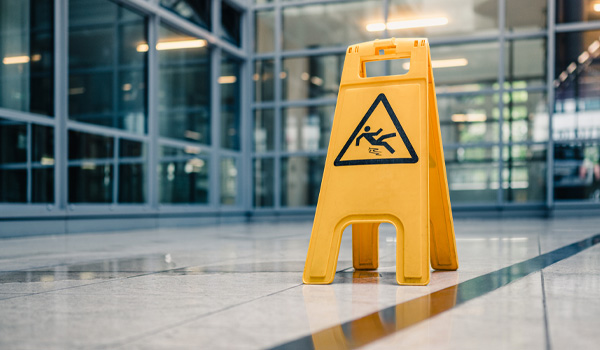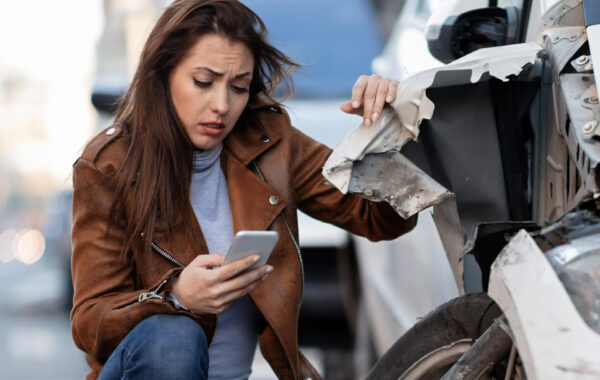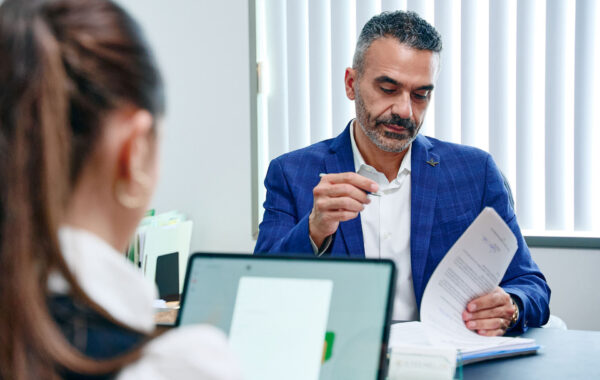
Critical Components of a Slip & Fall Incident & What to Do
If you ever get hurt in California because you slip or trip and fall while you are on someone else’s property or on a sidewalk, you may be eligible for compensation for any injuries resulting from the accident. Compensation can include payment for your medical expenses, for lost income and loss of future earning power, for pain and suffering, for damage to your possessions, and for other problems that stemmed from your injuries.
Slip-and-fall cases can be complicated, and it is best to have an experienced personal injury attorney on your side.
Components of a Slip-and-Fall Case
To get compensation for you in a slip-and-fall incident, there are several things that a lawyer must prove:
- There was an unsafe condition at the place where you fell. Some examples of unsafe conditions are objects on the sidewalk in front of a home or business, food on the floor in a grocery store, malfunctioning escalators or poorly maintained stairs in a shopping center, wet or slippery floors in an office building, ripped carpeting in the hallway or lobby of an apartment building, or bad lighting in a parking lot.
- The unsafe condition was caused by the property owner, or the property owner knew about the unsafe condition, or the property owner should have known about it.
- The property owner did not fix the unsafe condition.
- You were injured because of your fall.
Collecting Evidence
In order to prove these components of a slip-and-fall case, you will need to have evidence. It is best to write things down and take pictures, if you can, and to do it as soon as possible.
The most important things you need to document if you slip and fall are your injury and the unsafe conditions that may have caused you to fall. Keep the following steps in mind should you ever slip and fall:
1. Write a description of what happened.
It is important to write a description of what happened when you slipped and fell as soon as possible. Written accounts that are made at the time or immediately after an incident are considered more valuable as evidence than those written down later or never written down at all because the accounts are made when your memory of the incident is still fresh.
Write down what you were doing right before you fell and describe how you fell. Be sure to include the date and time of the incident and describe the conditions of the area where you fell, including any unsafe conditions you can see that may have contributed to your fall.
2. Take photographs.
If you have a smartphone or other camera with you, take photographs of the place where you fell, especially of anything there that may have created an unsafe condition. Take both close-ups of the exact spot where you tripped or slipped and fell and pictures from further away that show more of the area. If you do not have anything with you to take pictures, return to the site or ask someone else to go to the site with a camera as soon as possible.
3. Get contact information from witnesses.
Get the name, address, phone number, and email address of anyone who saw you fall or who came onto the scene later and could describe the unsafe condition of the site.
4. Report the accident.
You should report the accident to the property owner, manager, or whoever is there in charge of the premises. Get a copy of their incident report before you leave.
5. Say as little as possible.
Do not say that the accident was your fault, and do not apologize. Do not blame anyone else either; do not talk about fault at all. Do not give any more details than necessary to the property owner or manager. Do not post details about the accident on social media. Do not give a written or recorded statement to the owner’s insurance company without talking to an attorney first.
6. Get medical treatment quickly.
Seek medical treatment as soon as possible. This is necessary for your health, and the medical professional’s documentation of your injury will also provide important evidence if you later decide to file a lawsuit. If you put off getting medical treatment for several days or weeks, the relationship between your fall and your injuries may not be as clear-cut. An opposing lawyer could claim that you did not hurt yourself when you fell but from some later incident that took place somewhere else, even if that is not what really happened.
7. Keep a journal.
In addition to writing down a description of what happened as soon as possible after the accident, you should also keep an ongoing journal where you can make written notes about your treatments, how you are feeling, and any limitations that you are experiencing because of your injuries. Always try to write things down as quickly as possible after they happen, and include names, when applicable, and dates.
8. Contact an attorney before accepting any offers from an insurance company.
The property owner’s insurance company may soon contact you to make you an offer for compensation. The insurance company is not on your side, and its goal is to pay you the least amount it can get away with. The offer may be much lower than the amount you would receive if you file a personal injury lawsuit.
Do not accept any offers. Instead, talk to an experienced personal injury lawyer, who can evaluate your case fairly. Here at Etehad Law, we have more than 20 years of experience fighting hard for our clients to get them every bit of compensation that they are entitled to for their slip-and-fall accidents. Give us a call at (310) 550-1220 to find out more about how we can help. There is a strict deadline under California law for when you can file a lawsuit, so call us today. We would be glad to set up a free, no-obligation consultation at our convenient Los Angeles office.


